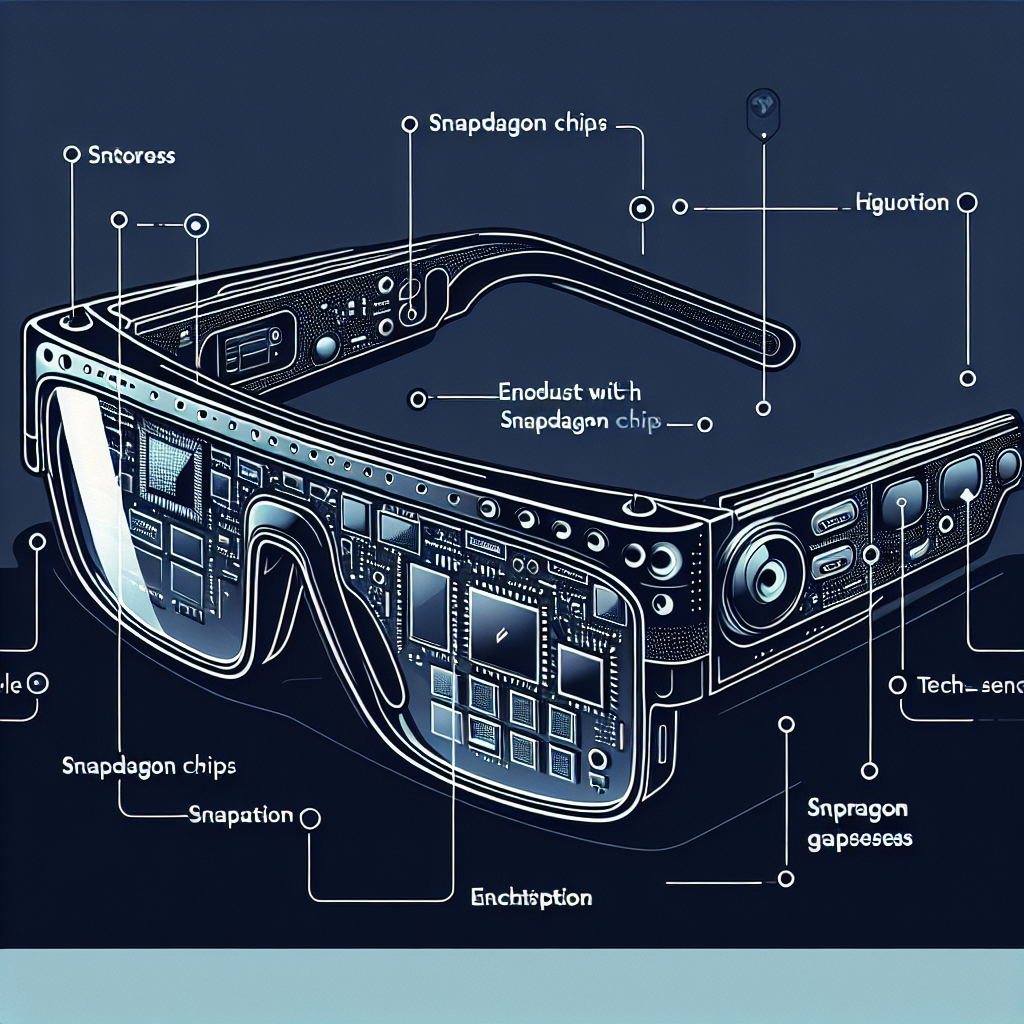In a recent announcement that may redefine the landscape of wearable technology, Peyush Bansal, CEO of Lenskart, has revealed plans to incorporate Snapdragon chips into their forthcoming range of smart glasses. The revelation, originally reported by Startup News in their article, “Lenskart Will Use Snapdragon Chips in Upcoming Smart Glasses, Says CEO Peyush Bansal,” underscores a strategic partnership that might significantly amplify the functionality and appeal of Lenskart’s offerings in the highly competitive smart glasses market.
Lenskart, renowned for its aggressive innovation in the eyewear industry, appears to be pivoting towards a blend of fashion and formidable technology by choosing Snapdragon chips, traditionally celebrated for their advanced performance and efficiency in mobile devices. This move is set to not only enhance the user experience through faster processing capabilities but also by potentially introducing features such as augmented reality, real-time navigation prompts, and more interactive user interfaces.
Snapdragon processors, designed by American semiconductor giant Qualcomm, are predominantly known for their use in smartphones and tablets. By transplanting this technology into eyewear, Lenskart is poised to push the boundaries of what smart glasses might typically offer. High-resolution displays, extended battery life, and smoother integration with other connected devices could become standard features in subsequent models.
The integration of advanced technology into everyday wearables signifies a shift in consumer expectations and industry standards. As individuals increasingly lean towards smart technology solutions that are seamlessly integrated into personal accessories, companies like Lenskart are capitalizing on the opportunity to lead in untapped markets. With previous ventures into lightweight frames and UV-protection smart lenses, this latest venture could further bolster their reputation as a frontrunner in innovative eyewear solutions.
Moreover, this strategic direction could catalyze a wider adoption of smart glasses. While brands like Google and Snap have experimented with smart eyewear, market traction has been moderate at best, attributed to high costs, limited practical functionality, and sometimes, design that did not resonate well with consumers seeking a traditional look. Lenskart’s approach could potentially address these concerns by offering devices that pique tech enthusiasm without compromising on aesthetic values.
However, this technological improvement also brings forward questions regarding data privacy, user security, and the broader implications of having increasingly intelligent systems embedded in personal accessories. As wearable technologies gather and transmit more personal user data, companies will be under scrutiny to deploy robust security measures to protect consumer information and ensure compliance with international data protection regulations.
As Lenskart plans to unveil these new smart glasses later in the year, all eyes will be on how these enhanced features will be received by the global market and how competitors might respond to this potential shift in wearable tech dynamics. With talk about harnessing cutting-edge chip technology, the future of eyewear seems poised on the cusp of a revolutionary change, steering closer toward a world where your glasses do much more than just correct your vision.



